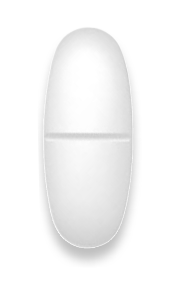Does Ashwagandha help you sleep?

Important points:
- Ashwagandha is an adaptogenic herb that is often used to relieve symptoms of stress. It is also said to have other health benefits, such as promoting mental alertness, sharpening focus, and treating symptoms of insomnia.
- Studies suggest that ashwagandha supplements are useful for relieving pain, lowering blood sugar levels, improving the immune system, promoting muscle strength, and reducing body fat. However, there is not enough research on the benefits of ashwagandha.
- Ashwagandha is available in tablet, powder and pill form. There is no general rule as to when you should take Ashwagandha. You can take it either in the morning or in the evening, depending on your preferences and goals.
- Ashwagandha is not recommended for pregnant and breastfeeding women, people with autoimmune diseases and thyroid disorders, and people recovering from surgery.
Ashwagandha is one of the most popular stress-reducing herbs, scientifically known as adaptogens. More and more people are turning to natural remedies to relieve various health ailments, which explains the rise in popularity of Ashwagandha. This herb has been used in Ayurvedic medicine for thousands of years and is believed to have many health benefits. Adaptogens like Ashwagandha are primarily used to support the body's response to stress and reduce stress levels as well as improve sleep quality.
The benefits of Ashwagandha
The main reason why so many people use or research ashwagandha is its ability to improve sleep. Several small studies have found that people who use ashwagandha supplements have better quality sleep. Additionally, ashwagandha is said to increase mental alertness, sharpen concentration, and treat the symptoms of insomnia. In addition to all of these benefits, ashwagandha is known to help with mild obsessive compulsive disorder, restless leg syndrome, and fibromyalgia, and regulates cortisol levels, which is a stress hormone.
Ashwagandha regulates the HPA axis, the interaction between the hypothalamus, pituitary gland and adrenal glands. In a healthy person, cortisol levels are high in the morning, which keeps you awake and helps you stay energized, and they gradually decrease throughout the day. In people with a disturbed sleep pattern, cortisol levels are higher in the evening.
Ashwagandha's sleep-promoting effects may be due to its content of triethylene glycol, a compound that promotes sleep. This plant also contains withanolides, molecules with antioxidant, anti-inflammatory and hormone-balancing properties. They improve the body's ability to cope with stress, as stress is the most common reason for reduced sleep quality and increased fatigue. Preliminary research suggests that ashwagandha helps you fall asleep faster, sleep longer and have a deeper sleep overall.
In traditional medicine, Ashwagandha is used as a pain reliever and to treat skin conditions, diabetes, gastrointestinal disorders, rheumatoid arthritis, and epilepsy. Research also suggests that supplementing with Ashwagandha may lower blood sugar levels and improve immune system health. Additionally, Ashwagandha may help improve muscle strength and reduce body fat. Some studies have also shown that supplementing with Ashwagandha may increase VO2 max, which promotes heart health.
While all of these benefits are promising, the lack of research on Ashwagandha makes it difficult to fully understand its benefits and effectiveness.

How to take Ashwagandha?
This herb is available in various forms, including tablets, capsules or powder. It is also commonly added to various cosmetic products. However, there is little information about the benefits of topical use, so taking Ashwagandha as a dietary supplement is recommended.
When should you take Ashwagandha?
You can take Ashwagandha any time of the day or night, as the effects are not immediate and may take days or weeks to notice. If you are taking Ashwagandha as part of your health routine, you can take it in the morning along with other supplements. However, keep in mind that taking Ashwagandha on an empty stomach may cause stomach upset, so try taking it in smoothies or other beverages.
If you are taking Ashwagandha to improve your sleep quality, it is better to take it in the evening before going to bed. Taking it at night can also be a good option for those who experience stomach discomfort after taking Ashwagandha in the morning.

Side effects of Ashwagandha
Ashwagandha is safe for short-term use, but the long-term effects are not well researched, so it is not recommended to take it for more than three months. High doses of ashwagandha can cause mild side effects such as diarrhea, nausea, upset stomach, and vomiting. Less common symptoms include dry mouth, drowsiness, dizziness, cough, and constipation, blurred vision, or rash. There is some evidence that ashwagandha supplements can cause liver damage, but this effect could be due to contaminants in unregulated supplements. Ashwagandha may also interfere with certain medications.
Ashwagandha is not recommended for the following people:
- Pregnant or breastfeeding women
- People with autoimmune diseases and thyroid disorders
- People recovering from surgery or about to undergo surgery
It's best to consult a professional if you're considering taking ashwagandha. If you fall into any of these categories, talk to your doctor about sleep aids that are safe for you.
If you have trouble falling asleep or wake up feeling exhausted, consider a combination product for even better results.

Try B・SYNC ON
Your sleep cycle has a direct impact on your sleep quality and how you feel throughout the day. If you have trouble waking up in the morning, B・SYNC ON can help you wake up easier and feel much more energized in the morning. This supplement contains an innovative formula that combines four natural ingredients: caffeine, vitamins B5 and B12, and zinc, which help you wake up energized, focused, and in a good mood. Unlike other sleep aids, B・SYNC ON targets your waking phase and does not affect your sleep quality in any way. It's the perfect solution if you want to align your daily routine with your body clock, and is also great for traveling if you want to avoid jet lag. Try B・SYNC ON today !
FAQ
Does Ashwagandha make you sleepy or give you energy?
Ashwagandha does not make you sleepy, but has been proven to reduce stress and support emotional balance. Ashwagandha is a natural sleep aid. It helps you fall asleep faster and sleep longer, and improves overall sleep quality.
Is it better to take Ashwagandha in the morning or in the evening?
You can take Ashwagandha any time of the day or night, depending on your goals and personal preferences. Some people may experience stomach upset if they take Ashwagandha in the morning on an empty stomach.
What side effects can Ashwagandha have?
Ashwagandha is generally safe, but if you take high doses of this supplement, you may experience side effects such as stomach upset, drowsiness, nausea, and diarrhea.
When should you avoid Ashwagandha?
Ashwagandha is not recommended for pregnant and breastfeeding women. It is also recommended to avoid Ashwagandha if you have an autoimmune disease or a thyroid disorder. Ashwagandha may also interact with certain medications or supplements.









